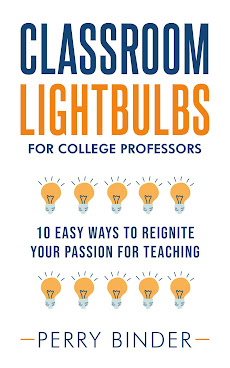Your Graduation Inspires Me
When I participate
in graduation ceremonies, I often imagine delivering my own speech to the
graduates, as if I were the commencement speaker:
Good morning
chancellor, president, deans, faculty members, staff, students, friends, and
family members. And to the graduates:
Every one of
you is special.
Every one of
you is a productive member of society.
Every one of
you is what inspires ME - because…
Every one of
you has a story to tell.
I just wish I
had the time to hear every one of them, and to be there as your career paths
unfold.
You have
already accomplished a huge milestone on that journey. The biggest step
though was just showing up. That’s it. The secret most people don’t
get until it’s too late. Just showing up as young freshmen was a
threshold event. Trying something which may be hard for the first
time. Experiencing new things, even if it’s unknown whether the objective
is attainable.
To me, the
greatest barriers to success, however you define that, are a fear of the
unknown, a fear of change, and a fear of failure. But you need a
game plan, and hopefully you can lean a little on what you learned in school to
figure out that route. No matter what you do in life, you always will
have your education.
I hope you made
some lifelong friends here. Frankly, I learned more about life from my
peers than from my professors. And I hope you got more than knowledge
from your profs because you can get that from a book. I’m hoping you
gained insight on whatever subject, and then stamped your own original perspective
on how to resolve issues and solve problems.
Many times the
things you do won’t work. And you will fail at some things you try.
That’s just a fact of life. Abraham
Lincoln once said: “My great concern is not whether you have failed, but
whether you are content with your failure.”
And you will
make mistakes. A lot of them! Both in your careers and your
lives. That’s just another fact of life.
But that’s okay. The trick is figuring out how to deal with
setbacks. Your family and friends will always be there for you. And
your education will continually serve as a foundation to get you back on track.
Franklin D.
Roosevelt said: “We are not prisoners of fate, but only prisoners of our own
minds.” Graduates, each of you must
unlock your mind and blaze a path built on reason and purpose. Life is
too short to spend it bouncing around like a random and aimless ball in a game
of Pong.® And whether you are 20, 30, 40, 50, 60, 70, or 80 years young,
it is never too late to test the boundaries of your dreams.
Finally, I want
all of you gathered in front of me to please lose the title of “former”
student, because you will be my students for many years to come. And I
expect in return that I can become your student, as I learn about your
professional successes, trials, and tribulations.
Every one of
you is special.
Every one of
you is a productive member of society.
Every one of
you is what inspires me – because...
Every one of
you has a story to tell.
What will your next
journey be?
c 2009-2013 Perry Binder, LLC






.jpg)



















.jpg)